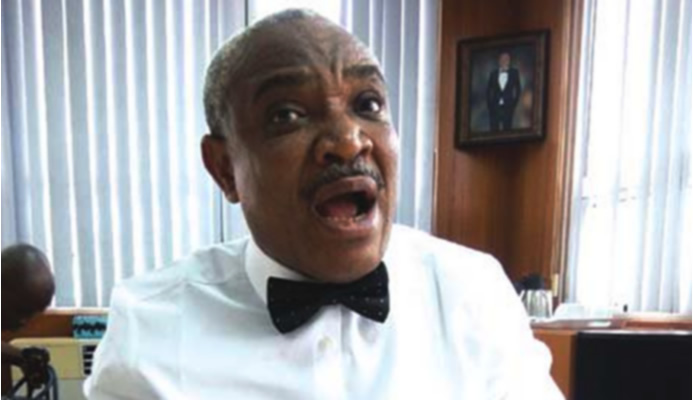Okoi Obono-Obla, a former special adviser to ex-President Muhammadu Buhari, has sharply criticized Abubakar Malami, the former Attorney General of the Federation, questioning his moral authority to undermine President Bola Tinubu’s administration. Obono-Obla alleges that Malami and other members of the Congress for Progressive Change (CPC) initiated a plot against Tinubu as early as April 2024, less than a year after Tinubu assumed office. This accusation comes in response to Malami’s recent claim that a declaration of loyalty to Tinubu from the CPC bloc did not accurately reflect the group’s position. Obono-Obla argues that Malami, having previously contested an election on the platform of the Peoples Democratic Party (PDP) in 2007, lacks the standing to speak for the CPC.
Obono-Obla recounted his own extensive involvement with the CPC, emphasizing his role in its formation and registration with the Independent National Electoral Commission (INEC). He served as the national interim adviser from 2008 to 2010 and later as the national deputy secretary until the CPC’s dissolution. In contrast, he points out that Malami joined the CPC much later, becoming the national legal adviser in January 2011. This timeline, according to Obono-Obla, underscores Malami’s limited historical connection to the CPC and weakens his claim to represent the group’s views.
The former special adviser detailed a specific incident that he believes exposed the anti-Tinubu plot. He described attending a dinner hosted by Emeka Nwajiuba, a former Minister of State for Education and a member of the CPC merger committee, on April 28, 2024. At this gathering, which Obono-Obla initially believed to be a Sallah celebration, he encountered Malami and several former CPC state chairmen, including individuals who had been expelled from the party for endorsing Goodluck Jonathan after the 2011 election.
During the dinner, according to Obono-Obla, Nwajiuba and Malami openly criticized Tinubu’s administration, which was still in its infancy. Other attendees expressed their dissatisfaction with Malami and other former CPC members who had served in government, questioning their contributions to the party and accusing them of neglecting its interests. This incident, Obono-Obla asserts, revealed a pre-existing resentment towards Tinubu and a concerted effort to undermine his presidency from within the CPC ranks.
Obono-Obla’s accusations paint a picture of internal dissent and political maneuvering within the remnants of the CPC. He portrays Malami as an opportunist with a questionable commitment to the party, highlighting his past affiliation with the PDP. The alleged gathering in April 2024, where Tinubu was openly criticized less than a year into his term, suggests a calculated strategy to destabilize his administration. Obono-Obla’s account positions him as a loyalist to Tinubu and the CPC’s original ideals, contrasting himself with those he accuses of betrayal and disloyalty.
The ongoing public disagreement between Obono-Obla and Malami offers a glimpse into the complex political landscape within the ruling party and its constituent factions. These internal disputes and accusations of disloyalty could potentially undermine the stability and effectiveness of Tinubu’s administration. The public nature of this conflict raises questions about the unity and cohesion within the government and its ability to address the pressing challenges facing the nation. The use of personal histories and past political affiliations further complicates the situation, highlighting the enduring impact of political rivalries and alliances.














